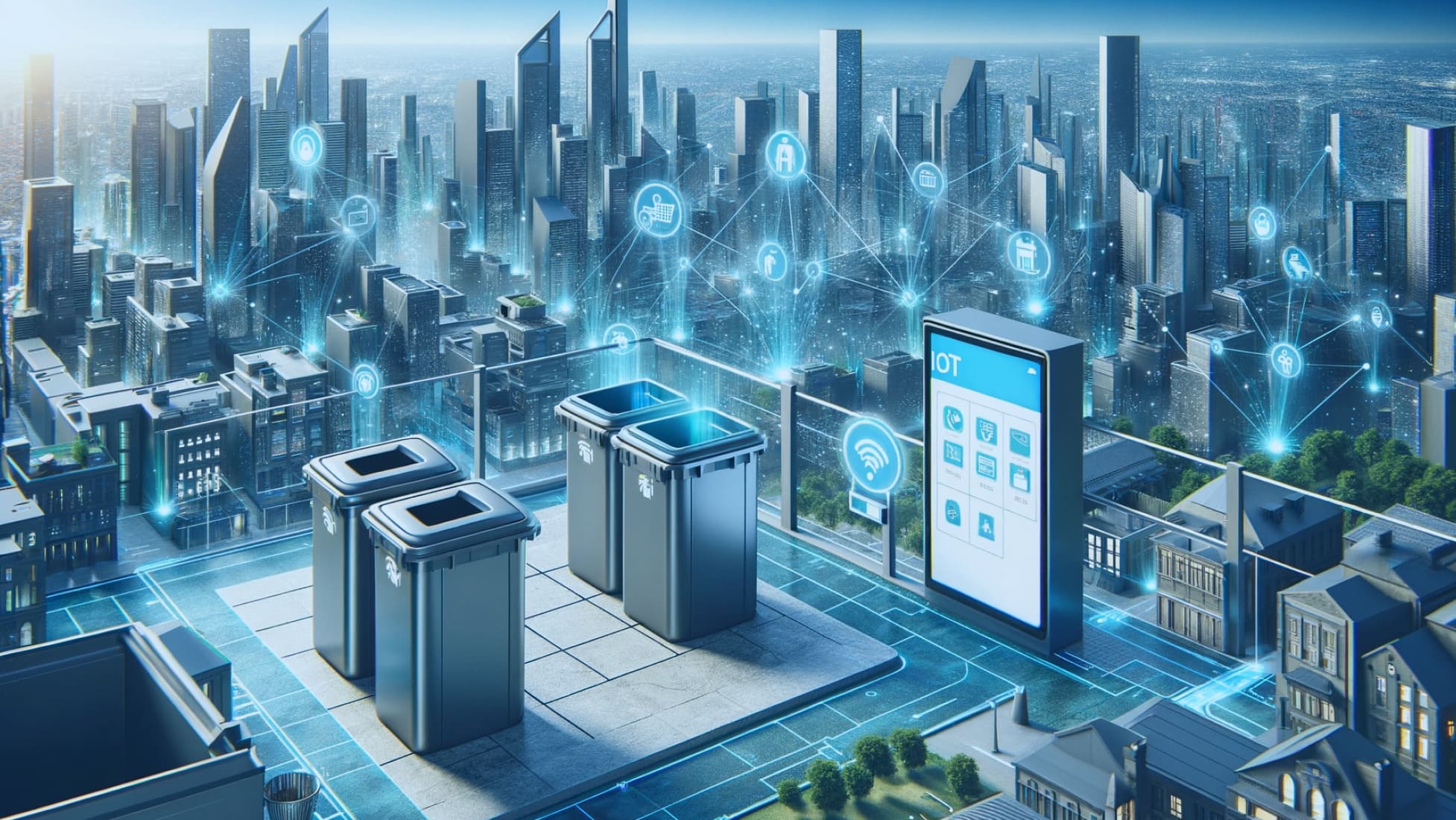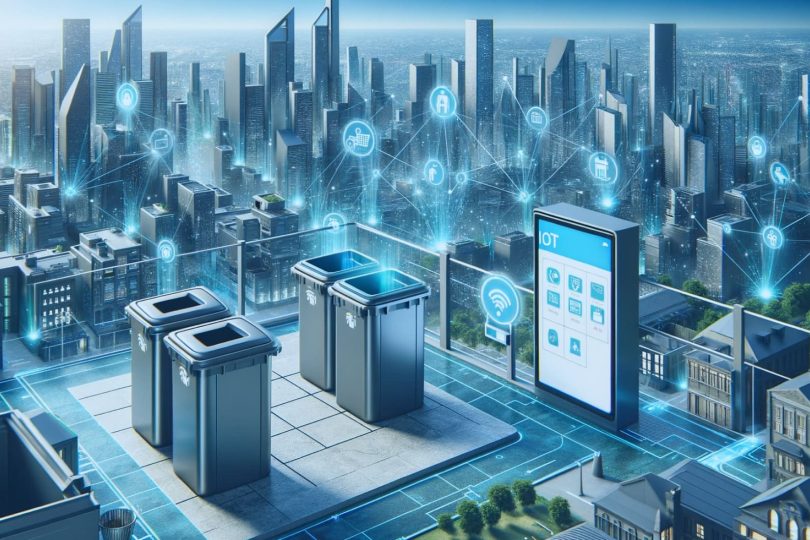
Waste management has always been a critical issue for urban planning and environmental sustainability. In recent years, the challenges have only increased with the growth of urban populations and industrial activities. Traditional methods of waste collection and disposal are often inefficient, leading to increased environmental pollution and resource wastage. Enter the Internet of Things (IoT) – a revolutionary technology that’s transforming how we handle waste. By integrating a waste management tracking system with IoT, we can
The Rise of IoT in Waste Management
Understanding IoT and Its Relevance
The Internet of Things (IoT) refers to the network of physical objects embedded with sensors, software, and other technologies, all connected to the internet. These interconnected devices can collect and exchange data in real-time, offering unparalleled insights into various processes. In waste management, IoT plays a pivotal role in tracking, monitoring, and optimizing waste collection and disposal processes.
Current Trends in IoT for Waste Management
One of the key trends in the waste management tracking system is the adoption of smart sensors and RFID tags. These devices are attached to waste bins and collection vehicles, enabling real-time monitoring of waste levels, locations, and collection schedules. This data is then processed through advanced analytics to optimize routes, reduce unnecessary pickups, and ensure timely waste collection. Smart waste management not only streamlines operations but also contributes significantly to environmental sustainability by reducing fuel consumption and greenhouse gas emissions.
significantly enhance efficiency, reduce costs, and minimize our environmental impact. This blog delves into how IoT is revolutionizing the world of waste management, offering insights into the latest trends and the future of trash tracking.
Key Features of Advanced Waste Collection Software
When it comes to effectively managing waste, advanced waste collection software equipped with IoT capabilities plays a crucial role. This integration leads to a smarter, more responsive waste management system. Here are some key features:
Real-time Monitoring:
The software provides real-time data on waste levels in containers, enabling timely and efficient collection.
Route Optimization:
By analyzing traffic patterns and waste collection data, the software suggests the most efficient routes, saving time and reducing fuel consumption.
Automated Scheduling:
IoT sensors help in predicting when containers will be full, allowing for automated and optimized scheduling of waste collection.
Enhanced Accountability:
The system tracks the performance and activities of collection vehicles and personnel, ensuring accountability and efficiency.
Data Analytics:
By collecting and analyzing data over time, the software can identify trends and opportunities for further optimization.
Environmental and Economic Impact of IoT in Waste Management
The integration of IoT in waste management systems presents significant environmental and economic benefits:
Reduction in Carbon Footprint:
By optimizing collection routes and schedules, IoT-enabled systems contribute to fewer vehicle emissions, thus reducing the carbon footprint of waste management operations.
Improved Resource Efficiency:
Leveraging data from IoT devices aids in better understanding waste generation patterns, promoting more efficient resource allocation, waste reduction, and enhanced recycling efforts.
Cost Savings:
The efficiency brought by IoT in waste management translates into significant cost savings, ranging from reduced fuel consumption to more effective manpower utilization.
Future Trends and Predictions in IoT-Based Waste Management
As we look towards the future, several trends are shaping the landscape of waste management:
Integration of AI and Machine Learning:
These technologies are poised to offer more precise predictions of waste generation patterns, enabling even more efficient collection scheduling and routing.
Advancement in Recycling Technologies:
IoT is expected to play a pivotal role in enhancing recycling processes, leading to more effective sorting and higher recycling rates.
Community Engagement Platforms:
There’s a growing trend towards developing applications and platforms that engage community members in waste management, fostering a culture of responsibility and sustainability.
How Our Advanced Waste Collection Software Stands Out
Our state-of-the-art waste management tracking system is at the forefront of these advancements. Here’s how our software makes a difference:
User-Friendly Interface:
Designed for ease of use, ensuring that all stakeholders can efficiently manage and monitor waste management processes.
Customizable Alerts and Notifications:
Keeps you informed about key events and thresholds in your waste management operations.
Comprehensive Reporting:
Offers detailed insights and analytics, enabling informed decision-making for continuous improvement.
Scalability:
Our software is built to grow with your needs, whether you’re managing a small community or a large city.
The integration of IoT in waste management represents a significant leap forward in tackling environmental challenges and operational inefficiencies. With advanced waste collection software, we can achieve smarter, more sustainable waste management practices. Embracing these technologies is not just an operational decision; it’s a step towards a cleaner, greener future. Our software offers a unique combination of efficiency, user-friendliness, and scalability, making it an ideal choice for those looking to revolutionize their waste management systems.
Embracing the Future: The Necessity of Advanced Waste Management Systems
As we move forward, the necessity of integrating advanced waste management systems becomes increasingly clear. The benefits of employing IoT technologies in this sector are not just limited to operational efficiencies but extend to broader environmental responsibilities.
Addressing Environmental Concerns:
With the growing emphasis on sustainability, IoT-based waste management systems play a crucial role in reducing environmental impact.
Meeting Regulatory Compliance:
Advanced systems help in complying with increasingly stringent environmental regulations and standards.
Enhancing Public Health and Safety:
Efficient waste management leads to cleaner cities and communities, directly impacting public health and safety.
Overcoming Challenges in IoT Implementation
While the benefits are numerous, there are challenges in implementing IoT in waste management:
Data Security and Privacy:
As with any IoT system, ensuring the security and privacy of the data collected is paramount.
Technology Integration:
Integrating new IoT technologies with existing waste management infrastructures can be complex.
Cost and Investment:
Initial investment in IoT technologies can be a hurdle for some organizations, though the long-term ROI is typically positive.
Steps Towards Implementation
For those looking to adopt an IoT-based waste management system, here are some steps to consider:
Assessment: Conduct a thorough assessment of your current waste management processes.
Planning: Develop a strategic plan, outlining goals, required technologies, and investment.
Pilot Testing: Start with a pilot project to understand the practical implications and benefits.
Training and Development: Ensure your team is well-trained to handle the new technology.
Continuous Improvement: Regularly review and optimize the system for better results.
The Role of Community and Stakeholder Engagement
A critical aspect of successful waste management is community and stakeholder engagement. Educating the public and involving them in sustainable waste practices ensures the success of any advanced waste management system.
Awareness Campaigns: Conducting campaigns to educate the public about responsible waste disposal and recycling.
Feedback Mechanisms: Implementing systems for residents to provide feedback on waste management services.
Incentive Programs: Introducing incentive programs to encourage public participation in waste reduction and recycling efforts.
Conclusion
The integration of IoT in waste management is not just a technological upgrade; it’s a vital step towards more sustainable and efficient urban living. Our advanced waste collection software represents the forefront of this revolution, offering a combination of user-friendliness, efficiency, and scalability. By embracing these technologies, cities, businesses, and communities can significantly improve their waste management systems, leading to a cleaner, healthier environment. It’s time to take action and be part of this transformative journey towards smarter waste management.





